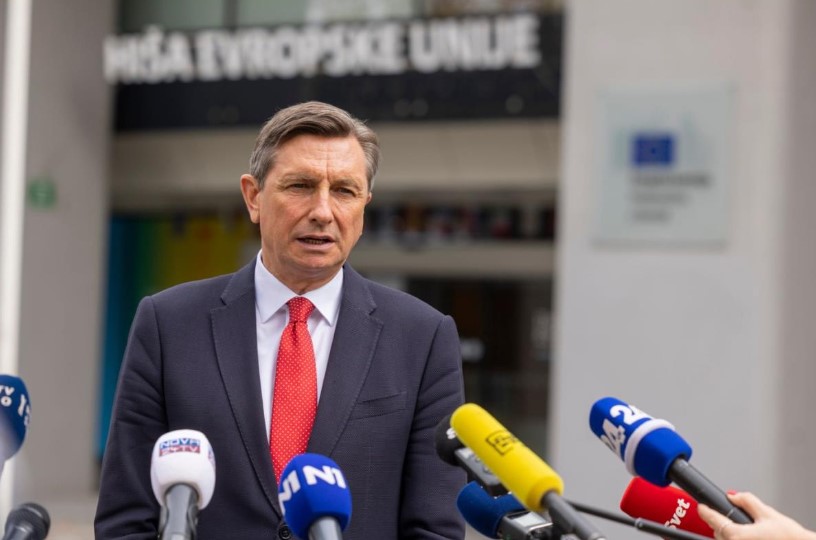“In the times ahead, we will need a connected and strong national and civic community,” stressed President of the Republic Borut Pahor, adding that people should keep this in mind when choosing who to support in the upcoming presidential elections. In doing so, Pahor made it clear that he does not support the divisive cultural fight of the left-wing candidates.
On Thursday, President of the Republic Borut Pahor took part in early elections at the Ljubljana Exhibition and Convention Centre, where he urged citizens to go vote in Sunday’s presidential elections. He invited the people to choose a candidate who will ensure Slovenia’s unity, as well as good relations with countries in the region and Slovenia’s international reputation.
In his press statement, Pahor also urged people to vote in the presidential elections, regardless of who they will vote for, because their vote will contribute to the choice of the next President. He stressed that the job of the President of the Republic is important and should be done by someone who has the will and passion for doing it.
A unifying President has great power Although the President has few legal powers, Pahor believes that this position still
holds a special power. If the President wants to be unifying and contribute to tolerance in society, he or she can do this much better than one could imagine. “In the times ahead, we will need a connected and strong national and civic community,” he stressed, adding that people should keep that in mind when deciding who they want to support.
The times ahead, especially in the wake of the war in Ukraine, will not be ordinary, he said. Therefore, he said, it was important for the President to ensure Slovenia’s unity, to give it strength, to speak to it with tolerance and harmony, to strive for good relations with the countries in the region, and to ensure Slovenia’s reputation in Europe and the world. He invited voters to take part in the elections and to choose a person who will be able to do just that, reports the Slovenian Press Agency.
Pahor also pointed out that most of the criticism of his work as President of the Republic over the last 10 years has been about his alleged silence or his failure to speak out on important issues: “Even the critics know that I did speak up. Just not in a way that would satisfy their expectations.” Nevertheless, the criticism of Pahor’s silence, he said, had a significant impact on the course of this election campaign, as it seemed that presidential candidates should have a very clear attitude towards issues that are actually more the responsibility of the National Assembly or the government.
He also said that he expected the candidates to answer the question of what they would do if they were elected to the position of President of the Republic. Pahor answered this question both 10 and five years ago: “I said that I wanted to be President of all, that I wanted to act as an ally and to have an initiative in the region,” he pointed out, recalling some of his achievements in the international community, including the Brdo-Brioni initiative.
Sara Kovač


